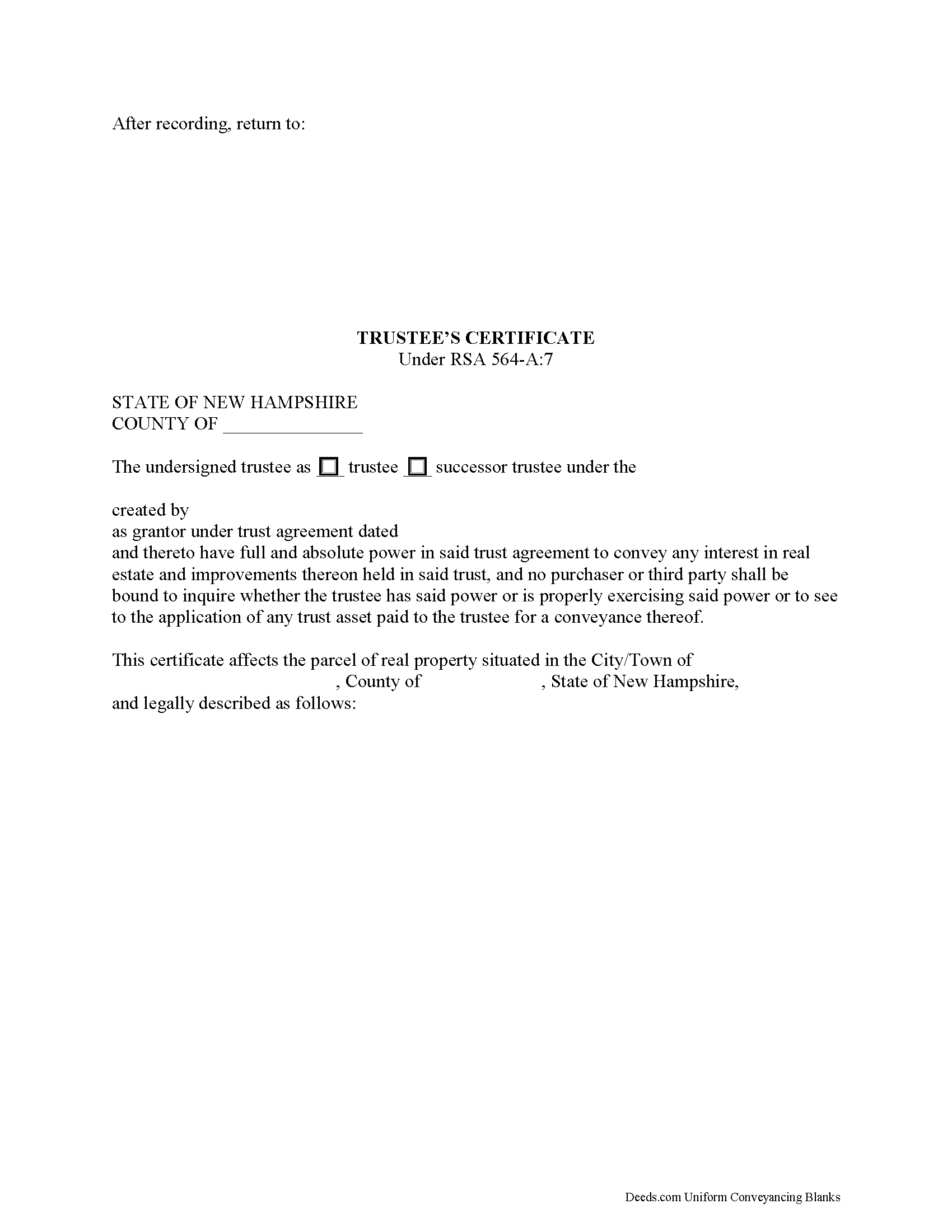Download New Hampshire Trustee Certificate Legal Forms

New Hampshire Trustee Certificate Overview

New Hampshire Trustee's Certificate for Real Property Transactions
In a trust arrangement, a grantor (settlor) conveys property to another person, called the trustee, for the benefit of another, called the beneficiary. As the trust is not a physical entity, it cannot hold title to property, and so a trustee acts as the trust's representative. The trustee administers the trust's assets pursuant to the terms set forth in the trust instrument. When property is conveyed out of the trust by the trustee, the transaction may need validation.
Codified at RSA 564-A:7, the trustee's certificate is a statutory form that protects third parties dealing with a trustee in transactions affecting real property. When recorded by a trustee in the registry of deeds in the county where the subject real estate is located, the certificate gives notice to all persons "that the trustee named therein and the trustee's successors have full and absolute power to convey any interest in real estate and improvements thereon held by the trustee," without further inquiry (564-A:7(II)). A certificate executed by a successor trustee has the same effect as the original certificate (564-A:7(III)).
The trustee's certificate contains the name of each trustee executing the document, the trust on behalf of which the trustee is acting, the trust's settlor (called the grantor), and the date of the trust instrument. The certificate is "executed with the formalities required for a deed of real property by the trustee," which includes a legal description of the real property held in trust (564-A:7(III)). Each trustee should sign the document in the presence of a notary public before recording in the registry of deeds in the county where the property is located.
Consult a lawyer with questions regarding trusts and trustee's certificates in New Hampshire.
(New Hampshire TC Package includes form, guidelines, and completed example)